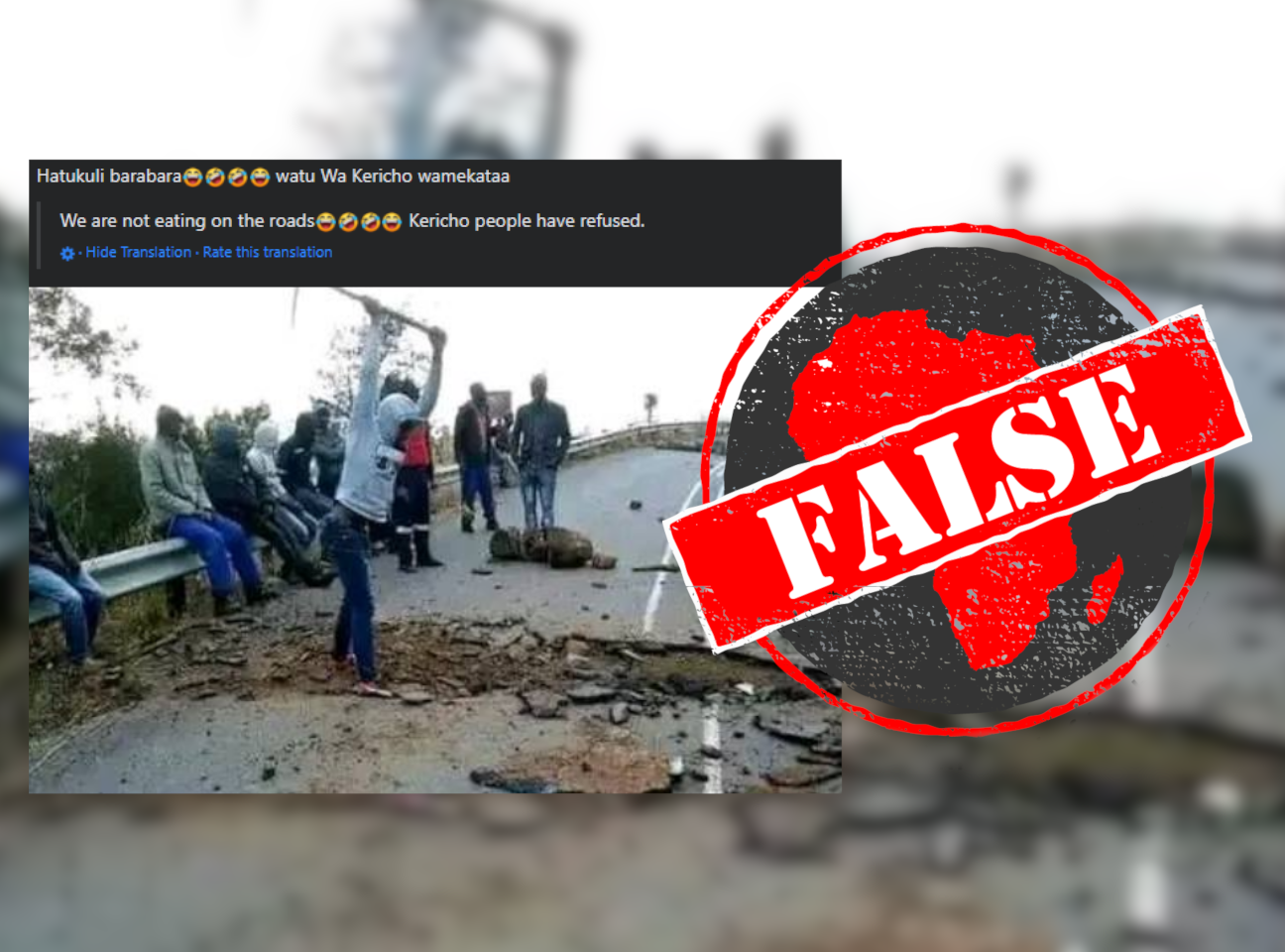IN SHORT: A photo of a man digging up the road is once again doing the rounds in Kenya, with the claim that it was taken in Kericho. This is not true. The incident took place during protests in South Africa in 2020.
A photo circulating on Facebook in Kenya shows a man digging up a tarmacked road while others look on.
“Hatukuli barabara watu Wa Kericho wamekataa,” the user captioned the photo in Kiswahili. It has attracted over 9,000 comments.
This translates to: “We do not eat roads. The people of Kericho county have rejected it.”
“Hatukuli barabara” is a sarcastic phrase used often by Kenya’s prime cabinet secretary, Musalia Mudavadi, during presidential election campaigning in January 2022.
Kenyans cast their ballots on 9 August, where they elected William Ruto of the United Democratic Alliance as president.
Mudavadi supported Ruto’s presidential bid and was the leader of Amani National Congress.
At the time of him using the phrase “hatukuli barabara”, he was telling then-president Uhuru Kenyatta that while his infrastructure developments were welcomed, citizens needed food more.
Kericho county is about 200 kilometres from the capital Nairobi and is dominated by the Kalenjin community. The county mostly voted for Ruto, who is also Kalenjin, and it would be surprising to see them protesting against him.
The photo was posted mostly on 7 July 2023, a few days after the on-and-off protests called by Kenyan opposition leader, Raila Odinga, mainly over the high cost of living.
Others claimed the photo was taken in Kisumu county, where Odinga largely enjoys political support.
The photo has also been posted here, here, here, here, here, here, here and here.
But was this photo taken in Kenya? We checked.

Protest in South Africa
While such apparent vandalism would most likely have been covered by Kenyan mainstream media, we found no such reports.
And a reverse image search revealed that the photo was not taken in Kenya.
It was published by several South African news websites in September 2020.
They were reporting on the destruction of a road by residents of Umzinyathi, a district municipality in the country’s KwaZulu-Natal province.
South African news site News24 also reported the incident.
According to the Citizen newspaper, residents who were protesting a lack of water and electricity blocked the road with stones and dug up the tarmac.
Africa Check has previously debunked other claims about the photo here and here.
The photo was not taken in Kenya in 2023, but shows an incident in South Africa in 2020.
Republish our content for free
For publishers: what to do if your post is rated false
A fact-checker has rated your Facebook or Instagram post as “false”, “altered”, “partly false” or “missing context”. This could have serious consequences. What do you do?
Click on our guide for the steps you should follow.
Publishers guideAfrica Check teams up with Facebook
Africa Check is a partner in Meta's third-party fact-checking programme to help stop the spread of false information on social media.
The content we rate as “false” will be downgraded on Facebook and Instagram. This means fewer people will see it.
You can also help identify false information on Facebook. This guide explains how.



Add new comment